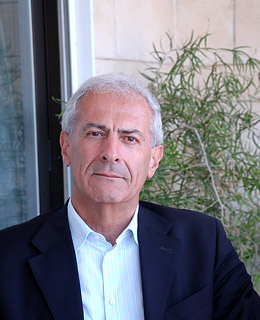
Professor of Demographics, Hebrew University of Jerusalem
Whether Israel at 120 will be a Jewish and democratic state will largely depend on demographic trends and their interface with policy decisions. Today, about 11 million people live in Israel and the Palestinian territories, comprising 5.5 million Jews, their 300,000 non-Jewish household members, 200,000 foreign workers, and nearly 5 million Arabs (1.5 million in Israel and East Jerusalem, 2 million in the West Bank, and 1.5 million in Gaza). By 2068, the population is expected to double.
Population projections assume continuing faster [population] growth [among] Palestinians in Israel, the West Bank and Gaza than among Jews — with [Jewish] immigration to Israel nearing its lowest levels ever. Different family sizes and strikingly diverse composition by age groups make the percentage of Jews among the whole population [living between the Jordan River and the Mediterranean] likely to shrink in 2068 back to where it was in 1948, on the eve of Israel's independence — about 35%. On the other hand, Israel within its pre-1967 borders might have a Jewish share above 70% — a majority but not a culturally homogeneous society. Swaps of some small areas densely settled by Arabs in Israel and by Jews in the West Bank, and redeployment of Israelis from the West Bank into Israel might keep Israel's Jewishness above 80%. The choice is given.